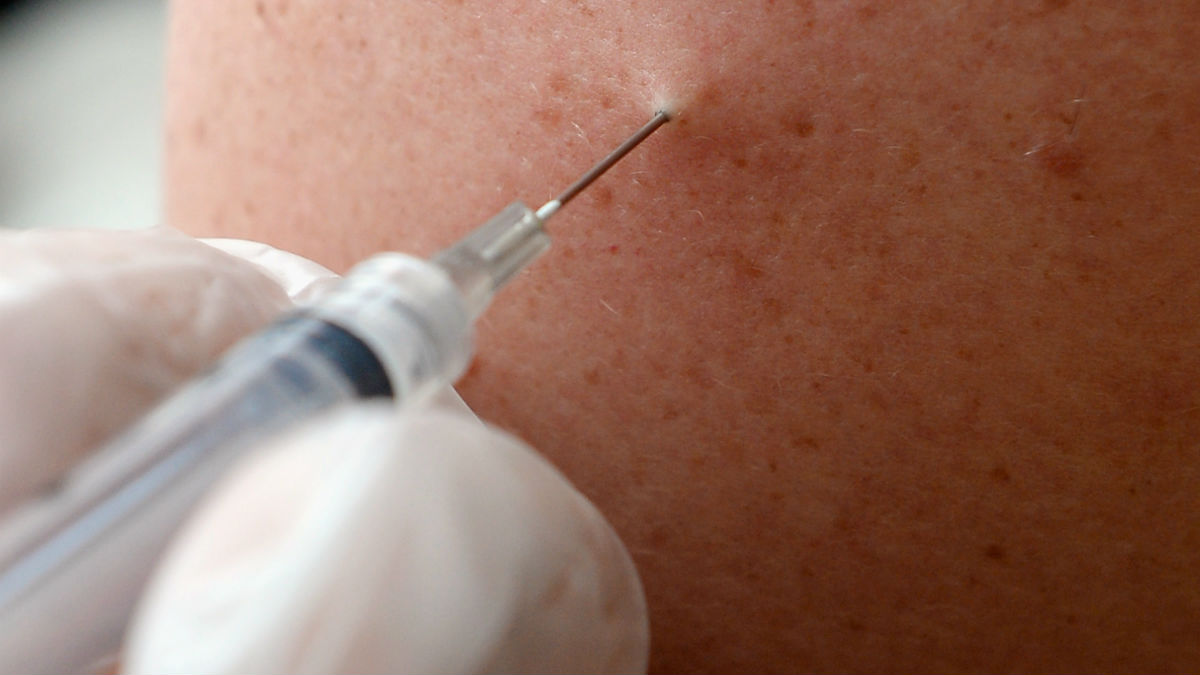Should meningitis B vaccine be extended to older children?
Government insists it wouldn't be cost-effective but parents say you can't put a price on a child's life

A free daily email with the biggest news stories of the day – and the best features from TheWeek.com
You are now subscribed
Your newsletter sign-up was successful
A panel of MPs will today hear evidence from affected parents, charities and health experts on whether to extend a meningitis B vaccination programme beyond infants.
It comes after more than 820,000 people signed a petition calling on the vaccination to be given to children up to the age of 11.
The appeal was launched by father-of-two Lee Booth, whose daughter was refused the vaccine on the NHS because of her age.
The Week
Escape your echo chamber. Get the facts behind the news, plus analysis from multiple perspectives.

Sign up for The Week's Free Newsletters
From our morning news briefing to a weekly Good News Newsletter, get the best of The Week delivered directly to your inbox.
From our morning news briefing to a weekly Good News Newsletter, get the best of The Week delivered directly to your inbox.
It became the most popular petition in parliamentary history after Jenny Burdett shared a harrowing image of her two-year-old daughter Faye dying from the disease.

"Deciding which children should get a life-saving vaccine against meningitis B is a battle between hearts and heads," says the BBC's James Gallagher.
What is meningitis B?
There are two types of meningitis infection – bacterial and viral. Bacterial meningitis is the most serious and can be fatal, especially among babies and young children. In the UK, most bacterial meningitis cases are caused by the group B bacteria.
A free daily email with the biggest news stories of the day – and the best features from TheWeek.com
Symptoms include a high fever, stiff neck, light sensitivity and red rash that won't fade when a glass is rolled over it. Viral meningitis is less severe, with milder flu-like symptoms. The NHS urges people to seek immediate medical help if they notice any of the symptoms of meningitis.
What vaccination is available for meningitis B?
Currently, the NHS only offers the meningitis B vaccine to babies aged two months, followed by a second jab at four months, and a booster at 12 months. "While the vaccine can be offered privately, stocks are low due to a worldwide shortage," the BBC reports.
What does the government say?
The Department of Health argues that raising the age threshold would not be cost-effective. "The NHS budget is not a finite resource," it said. "When any new immunisation programme is introduced, there has to be a cut-off date to determine eligibility." While the government acknowledges that it is "extremely difficult" for parents whose children aren't eligible, it insists there is no other way of introducing programmes to target those at highest risk "without introducing inequalities".
What do campaigners say?
Booth insists it would be cheaper for the NHS to vaccinate all children up to at least the age of 11 instead of treating meningitis survivors for the rest of their lives. "What price can you put on saving a child's life?" he asked. Pointing to the cost of drugs, therapy and changes to a person's home required after suffering from the disease, he said: "You are looking at about £3m over the course of that child's lifetime. The maths soon adds up and it would be more cost-effective to have this vaccination programme instead, I would say."
-
 Bad Bunny’s Super Bowl: A win for unity
Bad Bunny’s Super Bowl: A win for unityFeature The global superstar's halftime show was a celebration for everyone to enjoy
-
 Book reviews: ‘Bonfire of the Murdochs’ and ‘The Typewriter and the Guillotine’
Book reviews: ‘Bonfire of the Murdochs’ and ‘The Typewriter and the Guillotine’Feature New insights into the Murdoch family’s turmoil and a renowned journalist’s time in pre-World War II Paris
-
 Witkoff and Kushner tackle Ukraine, Iran in Geneva
Witkoff and Kushner tackle Ukraine, Iran in GenevaSpeed Read Steve Witkoff and Jared Kushner held negotiations aimed at securing a nuclear deal with Iran and an end to Russia’s war in Ukraine